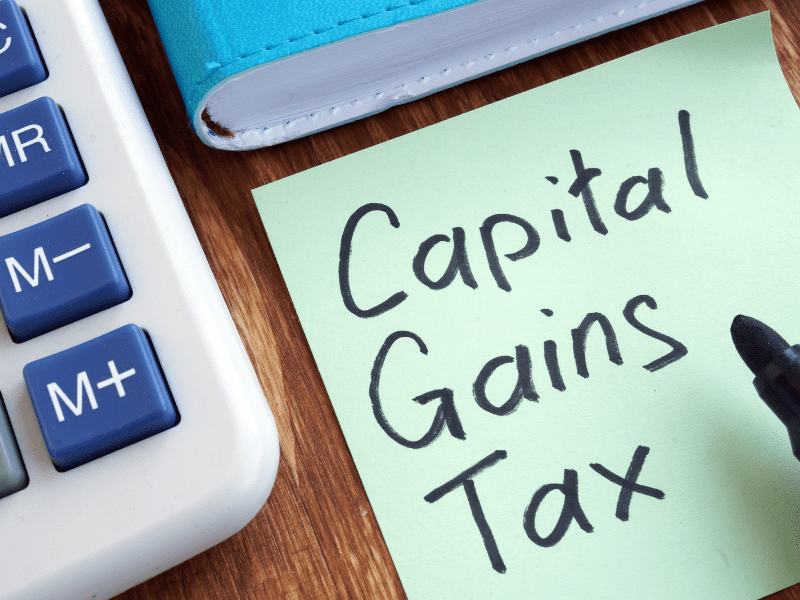
Have you ever found yourself feeling a little unsure, confused, or worried about what capital gains tax is and what it might mean for your tax return? Capital gains tax can be a frustrating concept to wrap your head around. However, if you have recently sold assets, ensuring you understand this concept is crucial to make sure you’re estimating your earning opportunities correctly.
As such, before you begin looking for your local team of professional “accountants near me,” we’ve outlined some of the main things you need to know about capital gains tax in the UK to help.
What is Capital Gains Tax?
First of all, we need to briefly outline what capital gains tax actually is. Simply put, capital gains tax is a unique form of taxation focusing on the increased value of an item between purchasing and selling it. However, not all items are necessarily required to pay capital gains tax in the UK, so it’s worth doing your research first.
Who Pays Capital Gains Tax?
Capital gains tax is paid by individuals. Companies typically pay corporation taxes instead of capital gains tax. It’s worth considering that some special rules may also apply in certain scenarios that may determine whether you will need to pay capital gains tax.
What Assets are Exempt?
There are several scenarios in which you will likely not need to pay capital gains tax for the sale of a good or possession that has increased in value. The most common example of this is when you sell your personal home, provided that the property has not been used as a rental or place of business. Furthermore, capital gains tax may also be exempt if you transfer an asset you own to your officially recognised partner (either a spouse or a civil partner).
Providing a full list of assets exempt from capital gains tax can be tricky. Make sure to contact your local team of “accountants near me” to get further advice regarding the sale of an asset on whether or not you’ll need to pay capital gains tax.
How Much Is Capital Gains Tax?
Capital gains tax is taxed according to your tax bracket, and it’s not necessarily easy to define since the total chargeable amount will vary depending on numerous factors. As such, when deciding how much capital gains tax you’ll pay for your UK assets, getting professional support first can be helpful.
How is Capital Gains Tax Calculated?
Capital gains tax is worked out based on a relatively simple calculation, although estimating the percentage that will be taken can be a little trickier and depends on your personal tax bracket and the nature of the asset you’re selling.
Capital gains tax is charged on increases in capital accrued over the duration of owning an asset. In other words, if you purchased a property five years ago and it is now worth more than before, you may need to pay capital gains tax on the sale.
Don’t worry; unless you purchased the item for next to nothing, or even got it for free, you won’t need to pay capital gains tax on the total value of the asset. However, you will need to pay CGT on the increased value, which is simple to work out. Simply subtract the purchase price from the selling price to see how much your asset has increased in value; this will demonstrate how much you need to pay.
For example, let’s assume you purchased your home for £200,000 and have just sold it for £220,000. In this example, the capital gained would be £20,000. As such, that’s the total you will be liable to pay capital gains tax on. However, it’s not the taxable gain directly, as you will still need to detract any tax free deductions here, such as allowances.
However, calculating the exact amount you pay as capital gains tax from here becomes trickier since there are numerous factors at play. For example, whether you’ve completed any additional work on the property at expense may be considered. Moreover, this decision should also consider your income tax band and whether you have any exemptions or tax reliefs.
What is the Capital Gains Tax Allowance in the UK?
Before you begin paying capital gains tax, you’ll need to have an income higher than the annual exempt amount, otherwise referred to as the AEA. At present, the capital gains tax allowance is frozen in the UK until 2026. However, this may change after the 5th of April, 2026. This fact is important to remember when planning to sell your assets.
At present, the capital gains tax AEA threshold sits at £12,300. As such, if you had
What Percentage Does the Capital Gains Tax Claim?
As a general rule of thumb, capital gains tax is between 18% and 20% for residential properties, depending on which tax bracket you usually fall into.
However, other forms of chargeable assets may have a lower capital gains tax, usually between 10% and 20%, which can definitely come as a relief for sellers. This figure is applied to the increase in value accrued by the asset between the time of purchase and sale/disposal.
When Do You Pay Capital Gains Tax?
As with regular taxes, you need to pay your capital gains tax by the 31st of January each year, provided you complete your taxes online. However, if you would prefer to complete your capital gains tax return by paper, you’ll need to send this to the HMRC earlier by the 31st of October 2022.
There is an exception to the rule here, though. Capital gains tax may be due sooner for residential property sales; in such scenarios, you must pay capital gains tax within 30 days of completing the sale.
Reporting Disposals
Any chargeable disposals (AKA sales) need to be reported to the HMRC through a self-assessment tax return. Supplementary pages within this tax return cover the capital gains tax for UK residents. Contact your local accountants to get further support on how to go about this process.
For Property
If you have recently sold a property, you may have to pay capital gains taxes. You will need to report the disposal of your property within thirty days of completing the sale through the UK property account. If you also complete a self-assessment tax return, you’ll also need to report the disposal on this.
Other Exceptions
You won’t have to report, depending on your circumstances. The most common exception occurs when the capital gains tax is less than the AEA, in which case, you may not need to report it.
10 Key Takeaways for Capital Gains Tax
At this point, we’ve outlined some of the main things you need to know about capital gains tax and how it works in the UK. However, it’s critical to recognize here that finding the right approach for your capital gains tax isn’t always straightforward; luckily, if this is something you’ve been struggling with, an accountant near you should be able to help.
- The term “disposal” refers to a sale, gift, or transfer: When talking about capital gains taxes, the term disposal can seem like it’s used incorrectly, but this isn’t the case. A “disposal” simply refers to a sale or gift of a chargeable asset.
- Not all CGT is paid at the same rate: Many capital gains taxes are paid at variable rates, which may significantly impact how much you end up paying.
- Non-property assets are at a lower rate: Compared to houses, other assets may be charged much lower. Often, this is just 10% or 20%.
- Capital gains tax for properties is reported differently: Rather than being due on a specific date, capital gains taxes for properties is due within thirty days of completing the sale.
- For non-property assets, taxes are due at different times depending on your submission method: All capital gains taxes should be recorded and paid digitally before January 31st. However, if you are submitting a paper copy, this must be sent before October 31st.
- Capital gains tax is only applied to the value increase. You won’t pay CGT on the total value of the property itself, which helps keep the cost down.
- You may not have to report if your chargeable gain is less than the AEA: The AEA has been locked at £12,300 until 2026, giving a decent amount of untaxable leeway.
- Capital gains tax isn’t only for sales. If you have gifted an asset and it has gained capital, you may still be liable for capital gains tax accordingly.
- You can use the government’s CGT estimator to see how much you owe: The gov.uk website provides a free to use capital gains tax estimator tool that can help you work out how much tax – if any – you should be paying.
- Professional support is out there: Capital gains tax can often feel like a minefield. Fortunately, professional support is available for capital gains taxes in the UK which can make filing these much easier.
Capital gains tax UK – Final Thoughts
If you have recently thought about completing your capital gains tax assessment, knowing where to start can seem like a challenge; still, we don’t think this should have to be the case – and, with the right approach, taking control of your capital gains tax in the UK can be easy.
Of course, one of the simplest options in this regard is simply to partner with your leading team of local “accountants near me.” So, if you’d like to learn more about completing your capital gains tax UK assessment, contact our professionals now for further support.




